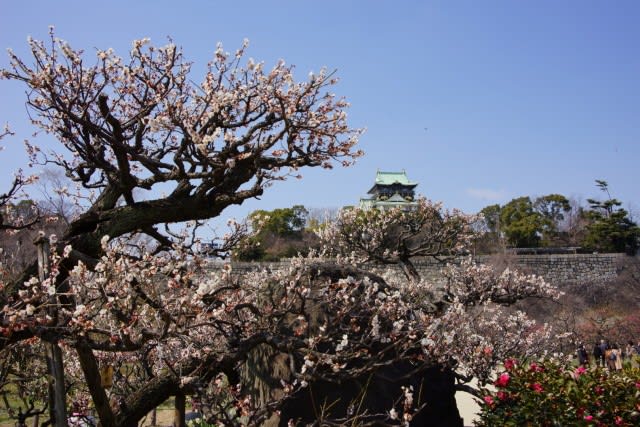The following is from an article by Hiroshi Yuasa that appeared in today's Sankei Shimbun titled, Can China Let Go of the "Axis of Evil?
Hiroshi Yuasa is a real journalist.
This article is a must-read for the Japanese people and people worldwide.
This past February, a giant tapestry reproduction of Picasso's "Guernica" was once again hung on the wall in front of the Security Council Chamber at U.N. Headquarters.
Guernica, Picasso's masterpiece, is based on the tragedy of the indiscriminate bombing by German troops of a town in the Basque Country in northern Spain during the civil war in April 1937.
The hellish scenes of a woman struggling in flames and a mother screaming as she holds her infant child in her arms seem to reflect the current devastation in Ukraine.
Russian President Vladimir Putin attacked Ukraine with tanks and missiles, saying he would not attack Ukraine, and bombed mid-to-high-rise housing and schools. He said he would only target military installations.
The tragedy of "Guernica II" and its supporters
The carnage involving civilians, which Picasso detested, occurred in the 21st century as the tragedy of "Guernica II.
Still, in the capital city of Kyiv, where the sound of bombs still echoed, she said, "I will defend my homeland. This land is all that matters," said a 26-year-old woman, and her words struck me.
It is the kind of love for one's the homeland and sense of mission that the Japanese people have lost since the end of World War II.
At an emergency special session on March 2, the U.N. General Assembly adopted a resolution condemning Russia for violating its territory and independence by force, deeming the attack on Ukraine an "aggression" in violation of the UN Charter.
One hundred and forty-one countries, including Japan, the United States, and Europe, favored the resolution. In comparison, five countries, including Russia, opposed it and 35 countries, including China and India, abstained.
China, in particular, refuses to describe the attack on Ukraine by Russia, with which it has entered into a "new axis" relationship, as "aggression.
China's foreign policy has been based on the "Five Principles of Peace," which then-Premier Zhou Enlai set forth after the country's founding. It has been based on the principle that it will never support infringements on the sovereignty of other countries or interference in their internal affairs.
It should have been this principle that led it not to recognize Russia's 2014 annexation of the Crimean Peninsula in southern Ukraine.
Under President Xi Jinping, however, territorial ambitions have prevailed over the principle of defending sovereignty.
He blatantly pursues this ambition in the South China Sea and the East China Sea, violates India's borders, and exerts pressure on democratically governed Taiwan from the air and sea.
Why not condemn Russian "aggression"?
According to Radiopress, at a February 24 press conference at the Chinese Foreign Ministry, a foreign reporter and spokesperson, Hua Chunying, exchanged sparks over this definition of "aggression."
A reporter from the AFP news agency asked, "Do you think it is acceptable to invade another country if you attack only military targets?
Hua Chunying expressed discomfort and confusion that "the definition of aggression should return to the starting point of handling the current situation in Ukraine." Ukraine "has a complicated historical background, and this aspect The change is not something everyone wants to see. "
Her remark was indecisive.
In terms of definitions under international law, "invasion" is an attack on the power or territory of an opponent without regard to its purpose, whereas "aggression" is the unilateral deprivation by force of sovereignty, region, or independence.
Thus, the attack on Ukraine by Russian forces is a clear act of aggression that violates sovereignty and independence.
A Reuters reporter further asked, "So, do you support the invasion?" to which Hua expressed frustration, saying, "I don't like that way of asking questions.
Hua stated that "the Chinese side is not a party to this and has consistently called for a settlement," but China has purchased large quantities of Russian energy and wheat behind the scenes.
The exclusion of major Russian financial institutions from the International Society for Interbank Financial China has also left room for a "loophole" by excluding major Russian financial institutions from SWIFT, an international payment network operated by Japan, the U.S., and Europe.
Strategic Interests in Opposing the U.S.
Later, when Vladimir Putin made his "nuclear threats," the world understood how dangerous a "wounded bear" could be.
With the specter of "the fall of Kyiv" looming, the Group of Seven (G7) industrialized powers united in a confrontation with Russia, and the North Atlantic Treaty Organization (NATO), the world's largest international organization, was formed. NATO has been drawn back to its original strategy of Russian containment.
Only China has not yet relinquished its "new pivot" of Sino-Russian cooperation to counter the United States' strategic interest.
In the midst of all this, a shocking report in the March 3 edition of the New York Times (U.S.) claimed that Chinese officials had asked Russia in early February not to invade Ukraine until after the Beijing Winter Olympics.
The Western intelligence report on which it is based suggests that the Chinese authorities were aware of Russia's plans and intentions before Mouthshire attacked Ukraine.
Beijing immediately denied this.
The "early February" date coincides with Putin's visit to Beijing in the face of a Western diplomatic boycott of the Beijing Olympics.
He and Xi had put together an unusually lengthy joint statement, pivoting on "China and Russia defending each other's core interests."
China and Russia recognized that they had entered a new era, oozing the theory of the decline of the U.S., saying that "the world has become multipolar and there is a power shift.
With the U.S. in mind, they also wrote that they would "eliminate interference by outside powers" and oppose "further expansion of NATO.
They went further to say that "the friendship between our two countries has no limits, and there are no prohibited areas for cooperation.
From the perspective of Western society, this can only be seen as the establishment of an "axis of evil" aimed at the destruction of the liberal international order.
A plan to avoid double suicide with Russia and to ride on the winning horse
Even if Ukraine is an economic partner for China, which has invested heavily in Ukraine, China believes that China-Russia relations should be prioritized to compete with the United States.
To counter the U.S. defense of Taiwan, they believe it is essential to disperse their power from the "Asian front" in the Western Pacific to the "European front" in Eastern Europe.
Nevertheless, they cannot afford to be complicit in the invasion of Ukraine and end up in a heart-to-heart with Russia.
While accusing the West of stirring up the Russian threat, he remains in the position of calling for the situation to be calmed down as soon as possible.
China will be able to determine the consequences of the war and ride a winning horse.
For Japan, a liberal nation adjacent to the pivots of China and Russia, the lesson of the Ukrainian war is that as long as the dictator thinks "power is justice," both the treaty and the memorandum can be scrapped.
The 1994 Budapest Memorandum of Understanding (MOU) was a security guarantee pledged by the U.S., Britain, and Russia to Ukraine, which gained independence when the Soviet Union collapsed.
As a result, Ukraine returned all of its nuclear weapons to Russia by 1996.
Russia had rendered the memorandum dead with its annexation of the Crimean Peninsula in 2014.
If abandoning nuclear weapons is the time to be prepared for an invasion by another country, then possessing nuclear weapons is the time to be free from the danger of invasion.


















